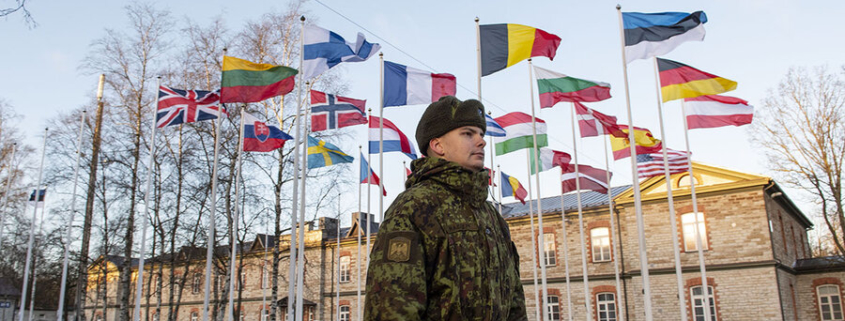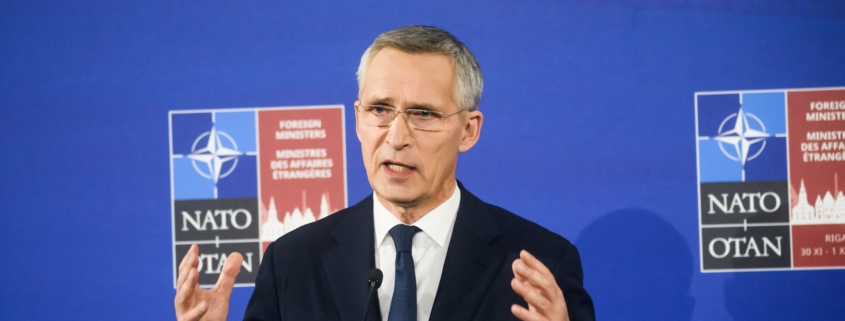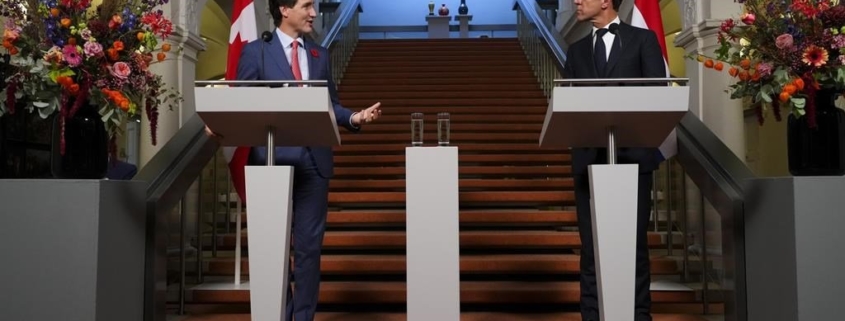
Tag Archive for: nato
NATO, with Russian hackers in mind, takes hard look at cyber strategy
/in Internet Security
The core concept behind NATO is a simple one: attack one member of the bloc, and all will respond. But while that logic worked during the Cold War, does it make sense to rely exclusively on it in cyberspace?
Western strategists are increasingly saying no. Last year, the alliance quietly announced that a series of lower-level cyberattacks could, cumulatively, be a tripwire for the pact’s mutual self-defense. The move marked a sea change in NATO cyber strategy, and sparked questions about how best to bolster NATO cyber defenses – and if offense, of a sort, might be part of the solution, too.
Why We Wrote This
NATO has based its security policy on deterrence, via a mutual defense pact among members. But its strategists are rethinking that approach when it comes to the digital battlefield.
In crafting NATO’s new cyber strategy, senior security and intelligence officials for the alliance say they were informed by a series of “increasingly destructive” cyberattacks by Russian and Chinese actors over the last few years.
What the incursions had in common was that, though damaging, they fell below the threshold of armed attack. It was increasingly evident, too, that the alliance needed to be more “proactive” in cyberspace, said NATO Assistant Secretary-General David van Weel.
That could mean using “hunt forward” teams of hackers like those the United States has, who defang threats before they have a chance to cause damage.
Brussels
Article 5 is the linchpin of the NATO pact, putting adversaries on notice that an attack against one is an attack against all. Founded on the Cold War logic of deterrence, the idea is that no aggressor will strike for fear of certain retaliation from combined NATO forces.
But with modern warfare expanding to virtual battlefields, NATO strategists are overhauling their cyber tactics. That means rethinking the concept of deterrence, as well as what constitutes a cyberattack that triggers Article 5: a crucial issue amid tensions between Russia and NATO-supported (though nonmember) Ukraine.
Since 2019 it has been clear that a large-scale cyberattack on a member could trigger Article 5. But…
Russia is in decline but still poses military threat: NATO chief
/in Internet Security
NATO Secretary General Jens Stoltenberg during a meeting of NATO foreign ministers to discuss how to counter a Russian military build-up on Ukraine’s border amid fears the Kremlin could be preparing to invade, taken in Riga, Latvia on November 30, 2021.
Gints Ivuskans | AFP | Getty Images
Russia may be in economic decline, but it still poses a formidable military threat — particularly in the realm of advanced weaponry and cyberwarfare, NATO’s Secretary General Jens Stoltenberg said Thursday.
“Russia is a power in decline, meaning the economic importance of Russia, the GDP is not keeping track with many other countries in the world. But even an economy in decline and a power in economic decline can be a threat and a challenge,” the NATO chief told CNBC’s Hadley Gamble.
“Not least because Russia has nuclear weapons. And Russia is investing in new modern military capabilities, deploying new hypersonic missiles, and also new nuclear-capable missiles deployed here in Europe. And therefore we need to take that very seriously,” Stoltenberg said.
The comments come amid heightened tensions and a volley of verbal threats between Russia and the West, against the backdrop of a massive Russian troop buildup along the border of Ukraine.
Ukrainian and Western officials fear a Russian land invasion of its western neighbor, whose Crimean peninsula Russia annexed in 2014. Moscow has rejected the notion, pointing the finger instead at what it says is aggression from Ukraine.
Western officials have warned of “severe consequences” for Russia in the event of a conflict, but have not specified what those might be beyond potential sanctions. Some analysts say this signals a lack of decisiveness or unified approach among Western leaders as to how to deal with Russia.
The situation is complicated by current energy market dynamics.
Ukraine’s Foreign Minister Dmytro Kuleba told CNBC on Thursday: “Putin has not decided yet whether to do a military operation … But if he decides to do so, things will happen in the blink of an eye.”
A NATO centre for climate security? Canada and Holland say yes
/in Internet Security
The Netherlands threw its support behind a new NATO centre of excellence to study the security threats posed by climate change during Prime Minister Justin Trudeau’s official visit to Holland.
Dutch Prime Minister Mark Rutte said during a joint media conference with Trudeau Friday that like many around the world, “NATO is also focusing more attention on the climate issue.”
“And that’s the reason why we are working on the NATO centre of excellence on climate and security, ” he said, standing next to Trudeau.
Get top stories in your inbox.
Our award-winning journalists bring you the news that impacts you, Canada, and the world. Don’t miss out.
“Canada has offered to host the centre. In the Netherlands’ view, Canada would be the perfect home for this platform, given a strong profile and commitment to this important issue.”
Trudeau first announced the intention to ask allies to support the development of such a centre during the NATO leaders’ summit in Brussels in June.
The hope is to have the design and negotiation process take place this year and next, and start establishing the centre itself in 2023. Canada said the centre would help NATO members better understand, adapt to and mitigate against the security implications of climate change.
What people are reading

Earlier this month, the United States released climate security strategies from several departments, including Defence, Homeland Security and Commerce, to look at ways to deal with how climate disasters could force mass migrations of people, exacerbating conflict and starting new wars.
The Pentagon and British defence departments have been developing climate security plans for more than a decade.
The new Canadian centre would become a strategic addition to the more than two dozen such NATO think-tanks. The centres offer the military alliance expertise and research capability to develop doctrines and approaches to a vast array of global security challenges.
They are headquartered mainly in European countries, and are devoted to the study of civil-military operations, cyber defence, military medicine, energy security, naval mine warfare, anti-terrorism, cold weather operations, among others.
In recent years, NATO’s cyber…



